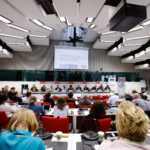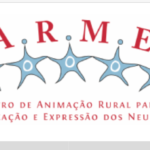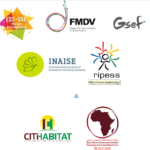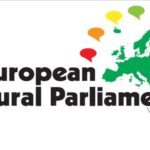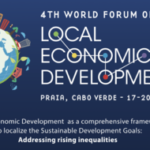On 10 October 2017, LDnet co-organised with ELARD a workshop on “Communities as change agents: local development in the EU beyond 2020” as part of EWRC 2017. It was followed by a networking session co-hosted by the Regional Studies Association. An impressive line-up of local practitioners and international experts led a lively debate, with many […]
Reinventing Europe – with and for its people
The CARMEN Group is made up of people with significant experience of the LEADER approach and territorial development, who have decided to make their ideas and proposals available to all who wish to draw inspiration from them. They met in CARMEN, Alentejo (Portugal). The following proposal emanates from this meeting: [bsk-pdf-manager-pdf id=”24″] The group welcomes […]
Circular economy and CLLD
This draft report has been developed as part of LDnet’s cooperation with HAWK Göttingen University under Erasmus+. It outlines the main concepts and policy position, presents 20 local examples examples of circular economy experiences in urban, rural and maritime contexts, and discusses the links between the circular and the sharing economy, and the circular economy […]
Local development and ‘localism’
The traditional paradigm of local development, of enhancing the development of its own area, has limitations. It is clear that it has positive effects in several areas, where local stakeholders, private and public, have understood that giving added value to local assets and to local resources can improve local areas’ situation and improving the welfare […]
The Praia Manifesto of Social and Solidarity Economy and Finance networks on local economic development
Meeting in Praia, Cabo Verde, on the occasion of the 4th World Forum for Local Economic Development, the SSE International Forum, the Global Fund for Cities Development-FMDV, the Global Social Economy Forum-GSEF, the International Association of Investors in the Social Economy-INAISE, the Intercontinental Network for the Promotion of Social and Solidarity Economy-RIPESS, and their regional […]
European circular economy stakeholder platform
The Commission and the EESC have jointly launched the European Circular Economy Stakeholder Platform, following the Circular Economy Stakeholder Conference held in Brussels on 9-10 March 2017. The European Circular Economy Stakeholder Platform will be a “network of networks” going beyond sectorial activities and highlighting cross-sector opportunities and challenges. The Platform will be a hub […]
Practitioners and researchers join the debate: “Communities as change agents: local development in the EU beyond 2020”
LDnet is co-organising with ELARD this event as part of EWRC 2017 (ref: 10B39). It will take place from 14:30 to 17:00 on Tuesday 10 October 2017 in Room VMA2 of the Committee of the Regions, followed by a networking session co-hosted by the Regional Studies Association. More than 160 people have registered for this […]
3rd European Rural Parliament
The European Rural Parliament is a long-term campaign to express the voice of rural people in Europe; and to promote self-help and action by the rural people, in partnership with civil society and governments. The 3rd European Rural Parliament will take place on October 18-21 October 2017 in Venhorst in the Netherlands. Parliamentary Sessions will […]
World Forum of local economic development – 17-20 October 2017, Praia, Cape Verde
The 4th World Forum will be held in Praia, Cape Verde, gathering national, regional, local government officials, practitioners and other stakeholders from all over the world. The World Forum of local Economic Development is an open working process that promotes open dialogue on Local Economic Development (LED), continues strengthening a global alliance among engaged stakeholders, promotes […]
Bibliography on circular economy
European Commission 2017, REPORT FROM THE COMMISSION TO THE EUROPEAN PARLIAMENT, THE COUNCIL, THE EUROPEAN ECONOMIC AND SOCIAL COMMITTEE AND THE COMMITTEE OF THE REGIONS, Brussels, Belgium, URL: http://ec.europa.eu/environment/circular-economy/implementation_report.pdf European Commission, Towards a circular economy, URL: https://ec.europa.eu/commission/priorities/jobs-growth-and-investment/towards-circular-economy_en Ellen MacArthur, Circular economy overview – The concept of circular economy, Isle of Wight, United Kingdom, URL: https://www.ellenmacarthurfoundation.org/circular-economy/overview/concept […]
Capitalising on CLLD experiences – building resilient local communities
This event will discuss how CLLD is applied in rural and coastal areas, how it can be used to promote inclusion, as well as its new urban and social dimensions. It is the third in a series of CLLD seminars organised jointly by the four EU Commission Directorates-General managing the ESI FUnds. It will will […]
16th Summer Academy – “Resilient communities: pillars of sustainable rural development”
The Euracademy Association and the South and East Cork Area Development Partnership organise the 16th Summer Academy entitled “Resilient communities: pillars of sustainable rural development”. The Summer Academy this year will be held in Cork, Ireland, and the surrounding area, from 3rd to 8th September 2017. The theme: How can rural communities become more resilient […]
